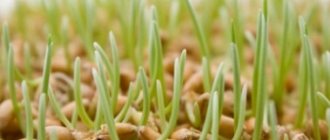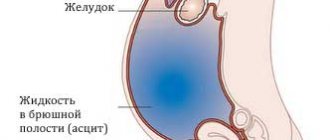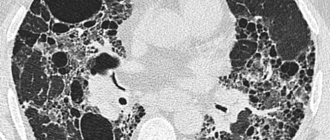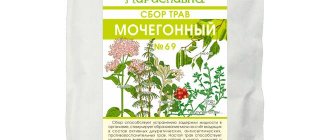Chronic heart failure complicates many diseases of the cardiovascular system. Its treatment should be carried out for a long time as prescribed and under the supervision of a doctor. However, folk remedies can also be used after consultation with a doctor. Treatment with folk remedies for heart failure may include the following components:
- Diuretics.
- Foods rich in potassium.
- Plants that stimulate contractility of the heart muscle.
Causes of heart failure
The main causes of heart failure are the following pathological conditions of the cardiovascular system:
- heart valve diseases;
- increased pressure - leads to overwork of the myocardium and stretching of its chambers;
- dilated cardiomyopathy - with this pathology, the heart wall is stretched without thickening, which leads to the fact that the release of blood into the arteries is halved;
- narrowing of the aortic mouth - leads to accumulation of blood in the left ventricle, which increases pressure and leads to its stretching, while the myocardium relaxes;
- IHD, myocardial infarction - lead to disruption of the blood supply to the heart;
- myocarditis – leads to impaired contractility and conduction of the heart muscle, stretching of its walls;
- arrhythmias – the process of filling the myocardium with blood is disrupted;
- pericarditis - creates obstacles to filling the ventricles and atria with blood;
- hypertrophic cardiomyopathy - leads to a decrease in internal volume and thickening of the walls of the ventricles.
All of the above pathologies disrupt the functioning of the myocardium , weaken it, which leads to the launch of compensation mechanisms. This gives an effect for a short time, but then the body’s reserve capacity comes to an end and the development of heart failure accelerates.
Non-cardiac causes of the disease include:
- the patient suffered a severe stroke;
- bronchial asthma;
- alcohol abuse;
- incorrectly selected treatment for cardiovascular diseases or self-medication;
- poisoning with bacterial toxins that disrupt myocardial activity.
Risk factors that can trigger the development of heart failure include:
- unhealthy diet leading to the development of obesity;
- bad habits;
- diseases of the thyroid gland and pituitary gland, in which an increase in pressure is observed;
- diabetes;
- long-term use of certain medications (calcium antagonists, glucocorticosteroids, antidepressants, antitumor drugs and a number of others).
The essence of pathology
This syndrome develops over several months against the background of other heart diseases.
This is an inevitable consequence of diseases such as advanced arrhythmia, heart muscle defects, coronary artery disease, cardiomyopathy and others. First, a violation of the integrity of muscle tissue (myocardium) occurs. There is a sluggish contraction of the left ventricle, which provokes insufficient blood flow to the heart valves.
The next stage is decompensation. Its mechanism is activated under difficult operating conditions of the organ. The layer on the left side of the heart thickens, and the organ itself contracts faster. At this time, the pituitary gland produces hormones that increase the amount of water in the blood.
At the next stage, the heart muscle can no longer cope with its pumping function, and the body’s reserves are exhausted. All tissues and organs experience oxygen starvation.
Next comes decompensation. Now the heart beats too weakly, its contractions are slow.
This is how heart failure occurs - the inability of an organ to supply the body with nutrients and oxygen.
Symptoms of heart failure
The disease can manifest with different clinical signs, depending on which part of the heart is most affected. In case of heart failure, the patient experiences shortness of breath, which is observed even after minor physical exertion, dizziness, and arrhythmia.
The neck veins swell, the eyes become dark, fainting occurs, the skin turns pale, swelling of the legs occurs, the liver enlarges, and fluid accumulates in the abdominal cavity (ascites).
The patient can hardly tolerate even minor physical activity. In the later stages of heart failure, shortness of breath appears even at rest. Due to lack of blood supply, all body systems suffer.
If the right side of the myocardium is more affected, the peripheral veins become overfilled with blood, which causes enlargement and swelling of the liver. If the left side is affected, the pulmonary circulation becomes overfilled with blood, and it partially passes into the lungs. Clinically, this is manifested by tachycardia, rapid breathing, pale or bluish skin color.
The main complaints of patients with heart failure:
- Edema .
At first they are minor, appear on the legs and feet, evenly affect both legs, occur in the evening and go away on their own in the morning. Then, as the disease progresses, the swelling becomes dense and does not disappear in the morning. A person cannot wear his usual shoes and feels comfortable only in spacious slippers. - Fast fatiguability . This symptom is observed in all types of heart failure. At first, a person notices that he has difficulty doing physical work that was previously easy for him, then this condition progresses and it becomes difficult for the patient to do even basic work.
- Shortness of breath . This is often the first visible symptom of heart failure. At first, shortness of breath occurs only during significant physical exertion (climbing stairs, running, intense workouts). Then, as heart failure worsens, shortness of breath may occur even during normal conversation or at rest.
- Paroxysmal cough . Occurs after physical activity. Many patients do not attach importance to cough, considering it a manifestation of chronic respiratory diseases (for example, bronchitis).
- Tachycardia . Rapid heartbeat is also one of the symptoms of heart failure.
Treatment at home: soothing teas
Medicinal herbs have a good sedative effect.
Herbal teas calm the nervous system, thereby normalizing the functioning of the heart. Herbs can be bought at the pharmacy or collected and prepared.
Recipe 1. For this collection you will need valerian root, lemon balm and peppermint herbs. The ingredients are mixed in equal parts. One tablespoon of the mixture is poured into a glass of boiling water and left for 20 minutes. Then filter. You need to take half a glass of the infusion in the morning before meals and in the evening before bed. If valerian has a stimulating effect, then it is replaced with motherwort.
Recipe 2. Ingredients – caraway and fennel fruits, motherwort herb. All this is mixed in equal proportions, then two tablespoons are brewed with half a liter of boiling water and allowed to cool. The tea is taken four times a day after meals.
Recipe 3. This collection also consists of equal parts of medicinal plants - hawthorn and chamomile flowers, as well as cudweed and motherwort herbs.
One tablespoon of raw material is poured into a thermos with a glass of boiling water and left for 8 hours. The strained infusion is drunk three times a day, half a glass after meals.
Diagnosis of heart failure
If suspicious symptoms appear, you must first make an appointment with a therapist. He will interview and examine the patient, find out complaints and main symptoms of the disease. After this, the doctor will listen to the lungs to detect wheezing and measure blood pressure and pulse.
In some cases, tests are performed that show the reaction of the myocardium to physical activity . Carrying out such tests is indicated if the doctor has doubts about the correctness of the initial diagnosis.
After completing the examination, if indicated, the patient is given a referral to a cardiologist, who conducts more detailed diagnostics, makes a final diagnosis and prescribes treatment.
A cardiologist may prescribe the following diagnostic procedures:
- ECG – detects heart rhythm disturbances;
- 24-hour Holter ECG – a special sensor is attached to the patient’s body, with which he walks throughout the day; this method helps to identify arrhythmia if it manifests itself in attacks;
- Echo CG – reveals structural pathologies of the heart muscle;
- chest x-ray – identify possible pathological changes in the lungs, determine the size of the heart;
- Ultrasound of the kidneys and liver - performed for heart failure of stage 2 and higher to identify pathological changes in these organs;
- MRI, CT are additional diagnostic methods.
Mode and nutrition
In acute forms of heart failure, hospitalization of the patient is necessary. Physiotherapy exercises, selected by a doctor, are possible.
Physical activity should be limited. It is necessary to eliminate all provoking factors, such as stress, bad habits, anemia, and taking certain medications that retain fluid in the body.
The diet for heart failure should be rich in vitamins, proteins and potassium. The amount of salt in the diet is significantly reduced. For edema, a salt-free diet is recommended.
The patient should avoid caffeine, fatty and spicy foods.
In the patient's routine, peace occupies a special place. But this does not mean that a person needs to lie down all the time. Physical activity is acceptable and necessary, but it should not lead to fatigue and discomfort. If the patient cannot move independently, he is recommended to sit more than lie down.
Walking in the fresh air is an essential condition of the regimen of patients with heart failure. In their condition, oxygen is vital for them. However, you should avoid walking at high or too low temperatures, as well as during strong winds.
The patient should get a good night's sleep. It is convenient for such patients to sleep on a high pillow, since the position with the head elevated reduces the likelihood of shortness of breath. If a person's legs are swollen, it is recommended to raise the foot of the bed.
Treatment of heart failure (classical medicine)
First of all, treatment is carried out for the underlying disease that led to the development of heart failure (coronary artery disease, myocarditis, hypertension, rheumatism and others).
Complete rest and bed rest are prescribed only to patients with severe acute heart failure.
An important role in the treatment of heart failure is played by the normalization of the patient's diet . Food should be dietary, easily digestible, and you should eat fractionally (often, but in small portions).
The diet should include foods rich in fiber, fresh fruits and vegetables. But the amount of salt and liquid consumed must be limited. In addition, alcohol, caffeine-containing drinks, fatty, fried, smoked, spicy, and pickled foods are prohibited.
In case of severe heart failure, symptomatic pharmacotherapy is carried out. If pulmonary edema or cardiac asthma develops, the patient must be urgently hospitalized.
Causes of pathology
As a rule, heart failure occurs in adults, especially older people. But recently the number of such patients among children has increased significantly. In childhood, pathology can develop against the background of heart defects, as well as infectious lesions of the organ.
In addition to serious heart diseases that disrupt the normal functioning of the organ, factors for the development of CHF include:
- hypertension,
- diabetes,
- obesity or, conversely, anemia,
- chemotherapy,
- metabolic disease.
Traditional medicine for heart failure
Heart failure is a disease that requires timely, scrupulous treatment . Therapy should be carried out under the supervision of the attending physician, taking recommended medications according to the instructions.
Folk remedies can be a good help in the treatment of cardiovascular failure. Home methods help strengthen the vascular system, improve blood flow, and restore the overall tone of the body.
The advantage of folk remedies is also the availability of ingredients, the absence of discomfort, contraindications and side effects when taken, and ease of preparation.
We invite you to try popular time-tested folk remedies for strengthening the heart and blood vessels.
- Tincture of oats and elecampane root
Take care of preparing raw materials in advance. In early spring or late autumn, dig up the elecampane rhizomes, thoroughly wash off any adhering dirt, cut them, and dry them in the oven.For this recipe we need 100 grams of raw materials, which should be filled with oatmeal broth.
Let's prepare the decoction in this way : rinse 100 g of oat grains along with the husks, pour in 0.5 liters of clean water, and boil. Remove the pan from the heat, add the chopped elecampane rhizome. The future medicine needs to be boiled again, removed from the stove, and left for 2 - 2.5 hours. Strain the tincture and season with two dessert spoons of honey. The method of treatment is as follows: three times a day you need to drink 100 ml of the drug 20 - 30 minutes before meals. The course of therapy should last two weeks.
- Beans for heart failure
Grind the dried or fresh bean pods in the amount of two large spoons, put them in an enamel-coated pan with a volume of 0.7 - 1 liter, and fill with water. Bring to a boil, simmer for 5 minutes.Then add 1 tbsp of different herbs to the bean broth. l.: leaf or inflorescences of hawthorn, leaves of motherwort, peppermint and lemon mint, inflorescences and foliage of lily of the valley. Mix all ingredients and let simmer for another three minutes.
The finished product must be infused for at least 4 hours, then filtered through cheesecloth. Pour the cooled tincture into a vessel and store in a cool place. We carry out the treatment as follows: 4 large spoons with the addition of 20 drops of Zelenin for each dose. We drink the mixture 20 - 30 minutes before meals 3 times a day. This drug will strengthen the condition of patients suffering from heart failure and symptoms of bradycardia.
- Hawthorn is a healer for the heart and blood vessels .
To make homemade medicine, take 0.5 kg of pure hawthorn berries, place them in a saucepan, add 1000 ml of water. Bring the mixture to a boil, leave on the fire for 20 minutes, then strain thoroughly. Pour 10 grams of sugar and honey into a saucepan with the broth, mix as thoroughly as possible. We carry out therapy for 30 days, taking 2 tbsp before meals. l. The mixture must be kept in a cool place. - Viburnum for strengthening the heart
This autumn berry has been used for heart ailments since ancient times. You can eat viburnum freshly picked, as well as frozen in winter and spring.An infusion of viburnum berries will also perfectly strengthen an unhealthy heart. Take a large spoon with a heap of clean berries, crush in a cup until juice appears, mix with 1 tbsp. honey Pour in 200 ml of boiled water and let it sit for an hour or two. We drink the heart medicine twice a day, 0.5 cups. We are treated in this way for 30 days, then there should be an interval. During the year you need to conduct 4 therapeutic courses.
- Peppermint leaf decoction
This drug helps restore regularity and continuity of heart rhythm and strengthen a weakened heart. Prepare 1 small spoon of crushed dry mint leaf, pour in 200 ml of freshly boiled water, cover with a lid, and wrap in a warm cloth. Or you can simplify the task by placing the ingredients in a thermos. Let the future medicine brew for 20-30 minutes, strain through several layers of gauze. We drink the broth in the morning on an empty stomach, in small sips. You can eat after taking the drug no earlier than half an hour later. the course of therapy should last from one to two years, every day without interruption. - Tartar tincture
Take 1 tbsp. l. foliage and color of tartar, pour in 250 ml of water, boil for 15 - 20 minutes. Cool, filter and drink half a glass 3 to 4 times a day.
Astragalus wooliflora
What you will need: herbal infusion in a ratio of 1:10.
How to take: place 20 grams of herb in a glass and pour 200 ml of boiling water. Take 3-6 times a day, 1-2 tbsp. It can be taken with an enema, administering 50-70 ml 1-2 times a day. The course of treatment is 20-30 days under the supervision of the attending physician.
Stock up on the necessary ingredients in advance
You can prepare the herbs and plants that are used in making homemade medicines to strengthen the heart yourself, because most of them grow in wastelands, steppes and gardens of our homeland.
But what about those who do not own a summer cottage, do not like forest walks, or simply do not have the necessary time?
The best folk remedies
When the heart stops functioning normally, it is necessary to promptly help your health and begin therapy. In addition to the use of modern drugs, people also turn to traditional medicine. Treatment of heart failure with alternative methods is an effective way to combat the disease. Many have proven its effectiveness by their own example. People know why pathology occurs and how to treat it, but they forget about prevention methods, which include the use of various herbal infusions and tea.
Traditional medicine uses natural ingredients that have a positive effect on the heart. The practice involves herbal medicine, consumption of vegetables and fruits, and other natural active substances. How to treat heart failure with folk remedies, combining them with drug therapy? Doctors do not give a definite answer, since not all herbs are compatible with synthetic drugs. Therefore, before starting therapy, carefully study the properties of a particular medicinal plant and contraindications in the drug instructions.
Prevention of heart failure
The main measures to prevent heart failure are:
- rejection of bad habits;
- proper nutrition;
- normalization of work and rest regimes;
- physical activity, physical education;
- avoiding stress;
- preventing hypothermia of the body;
- timely treatment of somatic diseases and cardiovascular pathologies;
- regular sanitation of foci of chronic infection in the body;
- hardening, strengthening the immune system;
- regular preventive examinations, ECG - this will help identify possible pathological conditions of the myocardium in the early stages, which will facilitate subsequent treatment and improve the prognosis.
Diuretics of natural origin
Diuretics for heart failure allow you to remove fluid from the body, which quickly accumulates and leads to edema. Medicinal herbs help reduce tissue swelling and also have a bactericidal and cleansing effect.
Here are the most common ones:
- lingonberry leaves – have an antimicrobial and mild diuretic effect;
- birch buds and leaves - eliminate severe swelling;
- juniper berries - have an excellent diuretic effect, but have contraindications - kidney inflammation;
- bearberry – has antiseptic properties.
If you have heart failure, you need to monitor the total amount of fluid you drink. Patients are allowed to drink up to a liter of clean water per day.
Where to buy traditional medicine for heart failure?
To buy everything you need for use in folk recipes, as well as ready-made decoctions, tinctures and mixtures, you can purchase them in our online store.
Our couriers will deliver products throughout Moscow and the Moscow region, and residents of other regions will receive their order by mail in a short time.
Muscovites and those who are passing through the capital can buy all the herbs and drugs they like themselves by visiting our herbal pharmacies. Find out the addresses of sales points on the website here.
Attention! All materials published on our website are protected by copyright. When re-publishing, attribution and a link to the original source are required.
Diagnostics
Diagnosing heart failure is fairly easy. In people with heart disease, diagnosis is usually made based on clinical presentation using the NYHA (New York Heart Association) classification.
Echocardiography and other instrumental methods are used to identify the preclinical stage, when there are almost no obvious symptoms of heart failure. For early diagnosis, it is very important to conduct a special stress test, since most often only this can determine the presence of the disease. In this regard, patients with heart disease need to undergo a medical examination with their attending physician once every 6 months with appropriate tests.
Diuretic herbs: features of traditional diuretics and a list of medicinal plants
Published: 09 Dec 2014, 20:44
Various plants have been used in folk medicine for centuries, which has made it possible to study their properties in detail. This knowledge remains relevant today, since in many cases even doctors can recommend to their patients not synthetic diuretics, but diuretic herbs that have a much milder effect. The main advantage of diuretic herbs over synthetic diuretics is their harmlessness, provided there are no allergic reactions and certain recommendations are followed (method of preparation, frequency of administration). It is also important to know which diuretic herb is used for a specific disease. This will allow, in addition to removing excess fluid from the body, to heal and strengthen the organs affected by the disease, thereby strengthening the body and speeding up the healing process.
Let's figure out which herbs are diuretic, and what diseases can be treated with them? Of course, in an attempt to list all the diuretic herbs existing in the world, the list will turn out to be endless, so we will consider only the main ones that grow in our latitudes:
These diuretic herbs are used to treat:
- swelling;
- inflammation;
- cystitis;
- urethritis;
- pyelonephritis;
- urolithiasis;
- hypertension;
- problems with the cardiovascular system and much more.
Diuretic anti-inflammatory herbs
The most extensive group of pathologies are inflammations, which can affect any organ, be it the heart, lungs, bladder or brain. During inflammation, the tissue in which the pathological process occurs becomes inflamed, increases in size and accumulates fluid.
Taking diuretic and anti-inflammatory herbs allows you not only to remove excess fluid from the body, relieving inflammation, but also to normalize the functioning of organs and systems of the body. In this case, an important role is given to the quality of the raw materials received, especially if the plants are purchased secondhand. In order for herbs to have the anti-inflammatory effect required of them, they must be free of mold and foreign matter, and they must also have a characteristic persistent odor. If the smell is weak or foreign impurities are felt in it, it means that the collection was stored incorrectly and has lost most of its beneficial properties.
Diuretic herb for cystitis
Inflammation of the urinary tract is a very common disease, especially in women. Diuretic herbs for cystitis can alleviate a woman’s condition no worse than medications, especially if we are talking about a chronic form of the disease, which can bother the patient for several years. The main thing is to know which plants and how to use them. The main folk remedies for fighting cystitis are bears ears, garlic, barosma, corn silk, hadrastis and echinacea.
These herbs relieve inflammation of the urinary tract, which allows you to expand their lumen and relieve pain when urinating, fight the virus that causes inflammation and remove excess fluid from the body.
Diuretic herbs for the kidneys
One of the most vulnerable human organs is the kidneys, whose responsibilities include filtering urine. During any kidney disease, it becomes difficult for the organ to cope with this function and needs help. It is for this purpose that it is recommended to drink various diuretic herbs for pyelonephritis. If you do not remove excess fluid from the body during pyelonephritis, then over time the patient will develop a persistent increase in pressure. The main plants taken for pyelonephritis are horsetail and bearberry.
Diuretic herbs also help with urolithiasis. In this case, the removal of urine will avoid the precipitation of salts and will prevent the formation of new stones. The main medicinal plants that prevent the formation of stones are:
To dissolve already formed stones, you can use the following decoction: parsley, rose hips, lingonberry leaves, strawberries and an infusion of carrot seeds. All this is diluted in the proportion of 1 tbsp. spoon per 250 ml of boiling water during remissions and 1 spoon per 200 ml of boiling water during exacerbations.
Diuretic herbs for hypertension and heart failure
Heart failure and hypertension are two diseases that go hand in hand. Each of these diseases leads to the development of the other over time. So, if you do not take diuretic herbs for intracranial pressure, then the heart will have to experience increased stress, counteracting and pushing blood into the blood vessels, which will certainly lead to a change in the structure of the myocardium and further inflammation of the heart muscle. There are also opposite situations when the root cause of pressure is problems from the SSS.
Diuretic herbs for heart failure should not only help remove excess fluid from the body, but also have the ability to regulate vascular tone. Such plants include shepherd's purse, rowan, dried grass, barberry, astragalus and arnica.
For hypertension, plants that, in addition to the diuretic effect, also have a calming, vasodilating and regulatory effect, work well. Such plants are: dill, knotweed, birch and others.
Diuretic herbs for children
Treatment of children with herbal medicine has a number of advantages, since in addition to the diuretic effect, plants can fill the child’s body with vitamins and help him fight various viruses. Usually, in reasonable dosages, all medicinal plants are harmless, but diuretic herbs should be selected with extreme caution for children prone to allergies. Otherwise, the main thing is to choose a reasonable dosage at which the chosen drug can have a moderate diuretic effect with minimal risk of complications.
In cases where the purchased herbal collection indicates the dosage only for an adult, you must calculate the optimal concentration for a child yourself. The following formula can help with this:
- child under 2 years old – 1/12 of the adult dose;
- 2-4 years – 1/8;
- 4-6 years – 1/6;
- 6-8 years – 1/4;
- 8-10 years – 1/3;
- 10-14 years – 1/2;
- 14-16 years old – 3/4.
Having figured out who can use herbal remedies from traditional medicine for which diseases and in what concentration, let's look at the main diuretic herbs and their use.
Milk thistle is a diuretic
When taking milk thistle, the diuretic effect is mild and short-lived, so decoctions from this medicinal herb should be poured a little every hour during the first days of treatment. However, this inconvenience in using a medicinal plant is more than compensated by its usefulness and ability not only to increase urine output from the body, but also to have an antispasmodic, antioxidant and anti-inflammatory effect, which is important for many diseases of the liver, kidneys (pyelonephritis, stones) and inflammation of the urinary tract.
A decoction of milk thistle is prepared as follows: 30 g of seeds are thrown into 0.5 liters of water, brought to a boil and left over low heat until ½ of the liquid evaporates, then infused for 15 minutes and filtered. It is recommended to take the decoction for 2 weeks 12 times a day, 1 spoonful every hour. For preventive purposes - for 6 weeks, 1 spoon twice a day.
Thyme - diuretic
In thyme, herbs have a diuretic effect; it is better to collect them during the flowering period, carefully pruning them rather than tearing them out. Otherwise, the root of the plant may be damaged. Thyme has not only a diuretic, but also an immunostimulating, sedative and analgesic effect.
This folk remedy is used for kidney diseases, atherosclerosis, stomach diseases and in cases where it is necessary to purify the blood. For these purposes, thyme tea is best suited, which is prepared as follows: 15 g of the herbal mixture is steamed in a liter of boiling water and infused for 15 minutes, then drink 1 glass three times a day.
This medicine should not be taken during exacerbations of stomach and duodenal ulcers, as well as during pregnancy.
Calendula is a diuretic
As a natural diuretic, calendula is recommended for rickets, scrofula and bladder stones. Very often, calendula flowers are added to various herbal medicinal teas, mixtures and tinctures.
The tincture is prepared as follows: take 25g of flowers per 100g of alcohol, infuse and take 30 drops three times a day.
Decoctions are made like this: add 10g of calendula flowers to 1 glass of boiling water, bring to a boil, let sit and drink 3 tablespoons three times a day.
There is evidence that calendula can cause miscarriage, so during pregnancy it is better to use another diuretic.
Horsetail is a diuretic
Horsetail, as a diuretic plant, is well used for hypertension, kidney disease, urolithiasis, liver disease, inflammatory processes, and lead poisoning. This medicinal plant as a diuretic is well suited for children and the elderly, since it is rich in proteins, silicic acid salts, tannins, fatty oils, alkaloids, organic acids and flavonoids.
Horsetail is used as a folk diuretic as follows: 4 tsp. dry herbs are thrown into 400 ml of boiling water, infused, filtered and drunk over 1 day in small sips at regular intervals.
Birch sap is diuretic
Birch sap and buds are diuretics, known to people for a long time. Birch sap, in addition to its diuretic effect, can affect the functioning of the stomach, stimulates metabolism, breaks down stones in the kidneys and bladder, removes toxins from the body, and helps with various liver problems and inflammation.
There is no need to tell you how to prepare birch sap, but few people know how to make a water infusion from birch buds. To do this, pour 10 g of kidneys into a glass of boiling water, cover and heat in a water bath for 15 minutes. Cool at room temperature for 45 minutes and then squeeze out. Add 200 ml of boiled water to the resulting tincture. The finished infusion is drunk warm before meals.
Diuretic linden
Linden wood, seeds, bark, leaves and inflorescences have a diuretic effect. Linden contains flavone glycosides, carotene, talicin, tannins, saponins, ascorbic acid and essential oils.
Linden tea is recommended as a diuretic for rheumatism, gout, joint pain, urolithiasis, and inflammation of the bladder.
The most common recipe for a linden diuretic is tea, for the preparation of which you take 2 tsp. leaves and inflorescences are poured with a glass of boiling water, left for 10 minutes, filtered and drunk hot.
Melissa - diuretic
As a diuretic for diseases of the cardiovascular system, a decoction of lemon balm is best suited, prepared as follows: 10 g of chopped herbs per 200 ml of water should be boiled for 10 minutes, then strained and 1 tsp. Take three times a day half an hour before meals.
Both the plant itself and herbal preparations based on lemon balm have good antispasmodic, diuretic and sedative effects, perfectly reduce blood pressure, and normalize heart rate.
Melissa should not be consumed by people with hypotension, as well as those who work in production, where increased attention and good mental reaction are required (Melissa has a weak hypnotic effect).
St. John's wort is diuretic
The medicinal properties of St. John's wort are diuretic, anti-inflammatory, astringent, hemostatic. This combination of properties is very useful in the treatment of various kidney diseases, including urolithiasis. Thanks to its medicinal properties, St. John's wort helps remove kidney stones, and its anti-inflammatory property reduces the discomfort associated with this disease.
For urolithiasis, the most useful decoction will be prepared as follows: steam 1 tbsp. herbs per glass of boiling water, cool and drink 1/3 glass three times a day. Every day you need to brew a new infusion.
Flax seeds are a diuretic
Flax seed is a diuretic and choleretic agent with a long history of use in folk medicine. This medicine helps well with kidney and liver stones, allowing you to wash stones and sand out of the body. However, due to the strong loss of fluid by the body during treatment with this natural diuretic, it is necessary to ensure that the daily volume of fluid consumed is at least two liters. This is especially true for people who decided not to use flax for treatment, but to use its diuretic effect for weight loss.
You can use flax seeds in various ways, including purchasing flax seed flour, consuming 1 dessert spoon daily in the morning.
Cinnamon is a diuretic
Cinnamon is a diuretic with interesting and controversial properties. On the one hand, this natural diuretic helps the kidneys remove excess fluid from the body, normalizes blood sugar levels in diabetics, strengthens the cardiovascular system, prevents calcium loss when taking synthetic diuretics, normalizes metabolism, and is used as a means for weight loss, on the other hand, cinnamon accelerates heart rate and slightly increases blood pressure. That is, this spice cannot be used for hypertension and some heart diseases.
It should also be borne in mind that cinnamon is a natural antibiotic and, when used together with other medications, can change them. In case of kidney and liver disease, despite the diuretic effect of cinnamon, it is necessary to take it with caution, since this natural diuretic contains toxic coumarin, which can damage these organs in high concentrations.
Valerian - diuretic
Valerian root is a rather weak diuretic and cannot be recommended from a medicinal point of view. And even though this traditional medicine is available in almost every home in the form of tablets or drops, its practical benefits are questionable, and the entire effect obtained is mainly associated with the “placebo” effect. The fact is that the main medicinal substance included in valerian is valepotriates - esters that have a sedative effect. But their rapid deterioration during storage of the medicine or during heat treatment does not allow obtaining a significant therapeutic effect, even if this drug is taken in a dosage of 800 mg at a time (about 30 tablets).
Mother and stepmother - diuretic
A decoction of mother and stepmother is recommended as a diuretic for kidney diseases and edema. dropsy. This medicinal herb can also be used as a means for weight loss, as it normalizes the functioning of the gastrointestinal tract.
It’s easy to prepare a decoction of mother and stepmother. Take enamel dishes and pour out 1 tsp. collection and pour 200 ml of boiling water, close the lid and heat in a water bath for 15 minutes. Then the broth must be strained and cooled. Drink 1/3 glass an hour before meals. The completed course of treatment with this diuretic should not exceed one and a half months.
Mother and stepmother should not be taken by pregnant women, during lactation, by children under two years of age and by those with liver problems.
Sage diuretic
Sage leaves have a diuretic effect, from which a simple decoction is prepared (1 tsp per glass of water, boil for 30 minutes, cool and strain).
Due to the fact that sage leaves contain paradaphenol, uvaol, oleanoic and ursolic acid, alkaloids, tannins and essential oil, this medicinal plant can be used not only as a diuretic, but also as a wound-healing, astringent, expectorant, hemostatic, antispasmodic, sedative , disinfectant and anti-inflammatory agent.
Sage infusion as a diuretic is recommended for diseases of the gallbladder, liver, kidneys, bladder and edema.
Drinking sage is not recommended for pregnant women or during lactation (it reduces milk production).
Juniper - diuretic
Juniper fruits, as a natural diuretic, are included in many diuretic and choleretic decoctions and infusions. In most cases, to obtain maximum effect, this medicine is combined with other plants, such as lovage root or steelberry root, violet, parsley or anise.
This diuretic is most useful for chronic inflammation of the bladder or kidneys, but with acute inflammation or long-term use, juniper will harm the kidneys, so you need to be careful with self-medication.
Oregano is a diuretic
The diuretic herbs oregano have been used in folk medicine for quite some time as a choleretic, diuretic and anti-inflammatory agent. The composition of oregano herbs includes such useful substances as phytoncides, flavonoids, thymol, carvacrol and essential oils, which have a beneficial effect on the human body.
Various decoctions and infusions of oregano in folk and official medicine are used as a diuretic for problems with intestinal motility and digestive disorders.
People with heart and circulatory problems, as well as pregnant women, should refrain from taking this medicine.
Motherwort diuretic
Motherwort is included in many medicinal diuretic teas for the kidneys, in which it has antispasmodic, diuretic, anti-inflammatory and antiseptic effects. For these purposes, the following plants are most often used together with motherwort:
Diuretic herbs
Many plants have long been considered diuretics. Today, despite the large selection of synthetic diuretics, the relevance of their use has not decreased at all. Currently, the diuretic properties of many herbs have been proven in clinical studies; they are part of modern drugs and are widely prescribed. At the same time, they have practically no serious side effects.
How do diuretic herbs work?
The mechanism of the diuretic effect of herbs has not been fully disclosed to date. Recent theories suggest that plants are aquatic, that is, they contain components that enhance the removal of water from the body without affecting the removal of electrolytes (salts). Such herbs may act by dilating the small vessels of the glomeruli, thereby increasing urine filtration. Their mechanisms of action also include weakening the reabsorption of water in the nephrons (the part of the kidney responsible for the formation of urine), affecting enzymes and hormones.
Some plants can also influence the release of electrolytes by the kidneys. It is known that to lower blood pressure, diuretics are required, which remove sodium from the body, an element that contributes to its increase. One study found that stinging nettle helped lower blood pressure in patients with heart failure. This suggests that diuretic herbs can act in a variety of ways and may be useful for a wide range of conditions.
Diuretic herbs are prescribed for a number of diseases of the urinary system. These include:
- cystitis (inflammation of the bladder),
- urethritis (inflammation of the urethra),
- pyelonephritis (inflammation of the renal pelvis),
- glomerulonephritis (inflammation of the glomeruli of the kidneys)
- kidney stone disease,
- prostatitis,
- asymptomatic excretion of bacteria in the urine.
Examples of diuretic herbs
Many diuretic herbs are used in official medicine. Here are examples of plants approved and recommended by the German Commission E, formed by the government to evaluate the quality of herbs.
The well-known horsetail is the only diuretic herb that Commission E recommends for edema, including traumatic ones. It is known that diuretic herbs are often contraindicated for edema caused by renal and heart failure.
The main active ingredients of lovage are terpenoids and coumarins. It is a relative of celery and parsley, demonstrating the best diuretic properties. It also has moderate antispasmodic and antimicrobial effects. Commission E approves the use of lovage for urinary tract infections and urolithiasis. To prepare an infusion of lovage, you need to pour 2-3 grams of dry raw material with a glass of boiling water for 20 minutes.
Goldenrod has clinically demonstrated good diuretic and anti-inflammatory effects. It is indicated for infections of the urinary system, urolithiasis, and the possibility of its use during pregnancy is being studied. 2-4 grams of the plant are poured into a glass of boiled water.
Since ancient times, curly parsley has been considered a good diuretic herb. The roots and seeds of the plant are used. Its active ingredients affect enzymes in the kidneys, increasing urine output. This mechanism of action makes it similar to synthetic diuretics, but without the usual side effects. Usually 2 grams of seeds or roots are poured with a glass of boiling water and left for 15 minutes.
Stinging nettle, a common weed, is often used as a diuretic and anti-inflammatory agent for diseases of the lower urinary system. In addition, its therapeutic effect on prostatic hyperplasia is being studied.
Of course, this is not a complete list of diuretic herbs whose properties have been scientifically proven. Due to their high safety, effectiveness and often complex action (antimicrobial, anti-inflammatory), diuretic herbs often become the basis for modern herbal preparations.
Diuretic plants in herbal preparations
The complex herbal preparation Canephron N includes extracts of lovage root, rosemary leaves and centaury herb. Thanks to modern technologies, the amount of active plant ingredients in a medicine is strictly standardized. This gives a more reliable effect than using homemade preparations. In addition, the high quality of the drug is ensured by careful quality control of the plants used.
Canephron N has a diuretic, anti-inflammatory, antispasmodic and antimicrobial effect. It can be used either independently or together with antibacterial drugs, the effect of which it enhances. The drug is indicated for the treatment of pyelonephritis, cystitis, glomerulonephritis and urolithiasis.
More on the topic
Medicines Canephron Drops
Prozora or slightly cloudy, yellow-brown color with the smell of lovage and aromatic, slightly bitter relish. Read more
Lovage has a thick rhizome from which branched roots extend. The stem is up to 2 meters high, straight, grooved, hollow. The leaves are dark green, double and triple pinnate. Read more
Hello! A child of three and a half years old often has more sore throats. Throat swab contains hemolytic streptococcus. Visits to specialists did not help.
Every day our body informs us about any disturbances in the functioning of internal organs by sending certain signals. This could be, for example, unpleasant, painful sensations in a particular area that arise in various situations. Most often, this is how the body informs its “owner” about the onset of the development of the disease. How can you decipher such a warning as pain when urinating? After all, you simply cannot ignore it! Read more









